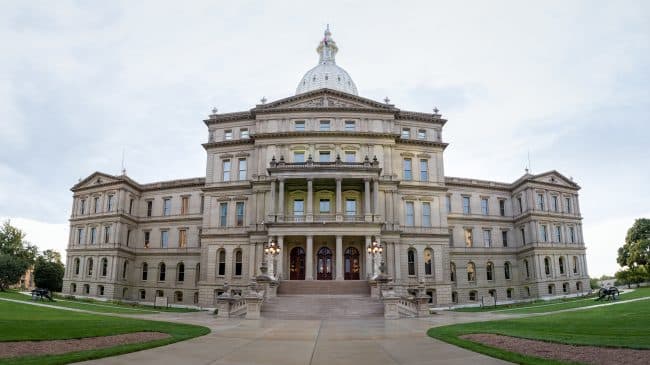Gov. Gretchen Whitmer’s administration has proposed new rules to govern Michigan’s fledgling adult-use marijuana market that would force all marijuana businesses to enter a labor peace agreement before they are able to apply for a state license.
The move appears intended to curry favor with labor unions, which could use this requirement as leverage to exact broader union contracts. The proposal would place union bosses in the catbird seat since they would essentially need to sign off on entrepreneurs’ applications for marijuana licenses, which are required before marijuana businesses can open their doors in Michigan.
Proposal 1, the initiative passed in 2018 that made marijuana legal for adult use in Michigan, made no mention of a forced unionization requirement. In fact, Proposal 1 states the administration may only require “qualifications for licensure that are directly and demonstrably related to the operation of a marijuana establishment.”
There is a long series of legal precedents demonstrating that Whitmer’s proposed rule is unconstitutional. The Supremacy Clause to the U.S. Constitution elevates federal law above state and local laws that may be in conflict, and federal law reserves to the National Labor Relations Board (NLRB) the sole authority to regulate private-sector labor relations. A U.S. District Court in 2005 ruled that a similar provision in Wisconsin that would have required contractors with local governments to enter a labor peace agreement ran afoul of the National Labor Relations Act.
For its part, the National Labor Relations Act only requires employers to negotiate “in good faith” with a federally recognized union that has achieved majority support of workers in an NLRB-supervised election. It never requires an employer to enter a union contract as a condition of opening its doors.
Gov. Whitmer’s proposed rule purports to protect “the state’s interests by prohibiting labor organizations and members from engaging in picketing, work stoppages, boycotts, and any other economic interference with the applicant’s business.” This language implies a threat against marijuana licensees if they do not agree to the demands of union bosses and would strengthen that threat with the backing of the state—all in violation of federal law.
The administration will likely point to a similar provision within California’s marijuana licensing scheme as support for its proposal. California’s rules require a licensee with more than 20 employees to enter a labor peace agreement, but this provision was expressly included within the language of Proposition 64, the voter initiative that legalized adult-use marijuana in California. Still, most legal scholars expect the California rule to eventually be struck down as a violation of the National Labor Relations Act.
In the meantime, many licensed marijuana growers in California have avoided the requirement altogether by contracting with farm labor services for their labor needs to avoid the threshold of 20 employees.
The Whitmer administration may argue that it has special powers to require a labor peace agreement by claiming a marijuana license is a privileged license required to operate a special type of business and this entitles the state to attach special conditions to its issue. Whitmer also may argue a similarity with other privileged licenses such as casinos or even occupational licenses for barbers and cosmetologists.
It’s debatable whether many such occupational licenses should even exist, but judicial precedence shows she cannot require a labor peace agreement for any such license.
The U.S. Supreme Court ruled in 1987 that the city of Los Angeles could not withhold the license of a taxicab company based solely on the condition that the company had to resolve a labor dispute. Regulation of private-sector labor disputes, noted the court, was preempted solely to the National Labor Relations Board and therefore no privileged license can be conditioned on a labor peace agreement.
The burgeoning legal marijuana industry carries the promise of new economic opportunities for hundreds of thousands of people, including those who previously fell victim to the government’s misguided war on drugs.
Until now, Michigan had taken a series of positive steps in its marijuana legalization process. Unfortunately, this unconstitutional proposal signals a significant step in the wrong direction. Rather than doling out political favors and strangling opportunities for many entrepreneurs, the state should return to empowering individuals and innovating in the cannabis legalization process.

